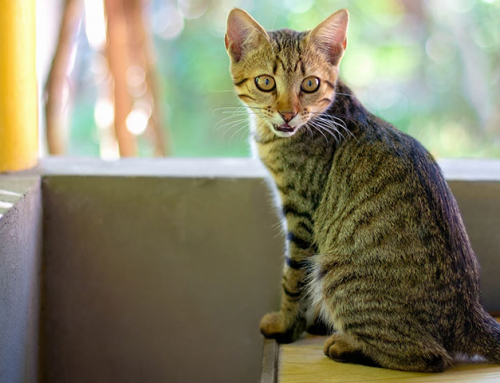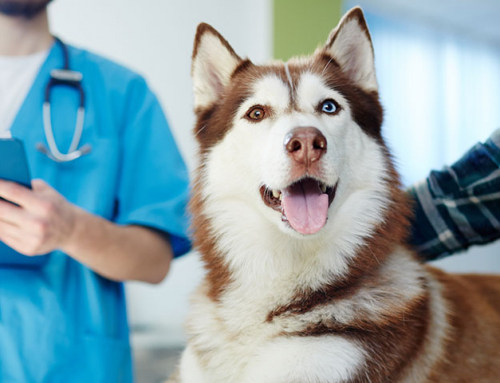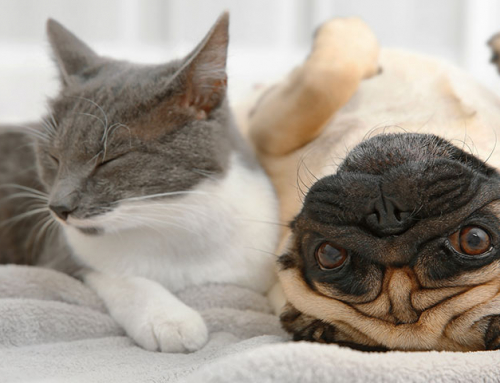Choosing to own a big dog means bigger medical bills, bigger pet food bills and pretty much bigger everything. Choosing a cat or small dog is often easier on the pocketbook, and they are much less likely to hog the bed. Nonetheless, small pets often present obstacles that the typical pet owner doesn’t expect. Dosing of medication may be the biggest.
Small pets need lower doses of most meds, particularly if the medication was manufactured for a human sized patient. This week I started a 16-pound doggie on Levemir, but first I had to make sure I could prescribe a realistic dose for this small dog as Levemir was made for humans and is particularly potent in dogs. He didn’t do well on the NPH his prior vet prescribed, so here I am, hoping I can control him on Levemir yet knowing it will be a very small dose indeed. I sent 3/10 cc syringes with “half unit” markings home with his owners.
Thank heavens for the genius who invented smaller insulin syringes. With small volume insulin syringes (such as 1/2 cc or 3/10 cc) the barrel of the syringe is narrower and the markings are further apart, allowing more accurate visualization and dosing for small volumes. Back when I graduated vet school there were only 1 cc insulin syringes. Imagine trying to dose half a unit with one of those! It was pretty much impossible. Back then it was common practice to dilute out insulin for cats and small dogs. Math errors when diluting insulin could result in diabetic crises. Trust me, I know – I worked ER and saw several cats present in DKA or hypoglycemic crisis and owners told me they had just recently started (diluted out) a new bottle of insulin. I would hesitate to ever dilute out insulin for any pet. Math errors happen.
Compounding medications into another form or strength is a trick that veterinarians routinely utilize for little pets. Of course these compounding pharmacies need regular inspections for facility sterility and drug potency, but it is a good way for veterinarians to be able to medicate accurately for small pets. I admit to being a touch leery of injectable compounded medications since the cases of fungal meningitis hit the news a few years ago after a compounded injectable steroid was used on people. Nonetheless, I have several compounded oral medications on the pharmacy shelf of my own veterinary clinic. I do this mostly for small patients when I just can’t accurately give 1/8th of a pill (or less) of the standard sizes available. We can also ask compounding pharmacists to make a medication into an oral suspension instead of a small tab or capsule.
Choosing “next best” med is another option. Sometimes we would prefer one drug over another but the medication strength leads us to opt for another suitable drug.
While I’m kind of on the subject… It costs a lot of money to get a medication FDA approved for a particular species. Pharmaceutical companies are more likely to get a financial return on dog meds than cat meds. I figure drug companies look at the bottom line to determine if they will drop the dough to get meds FDA approved for cats. I’ve long been irritated by this sad truth. I am a cat lady. In fact, my daily routine is ruled by several small felines. As a veterinarian, I am often forced to use medications for cats in an “extra-label” fashion because we have no alternative. When a drug company does go through the effort and expense of getting a medication FDA approved for the feline species, I do my best to use that product, even if it costs me just a smidge more than an alternative. And of course, these meds are sized in tabs or liquids that can be accurately measured for small cats.
I’m always happy to have ADWDiabetes readers send me questions. It is where many of these newsletter ideas come from! Keep those questions coming to joi.suttondvm@adwdiabetes.com.
NOTE: Consult your veterinarian to confirm that my recommendations are applicable for the health needs of your pet.







Dr. Joi, I always enjoy your articles. As a regular customer of ADW due to having a diabetic kitty, I am lucky to receive these articles regularly. Keep em comin! They are always relevant and interesting. Thanks!